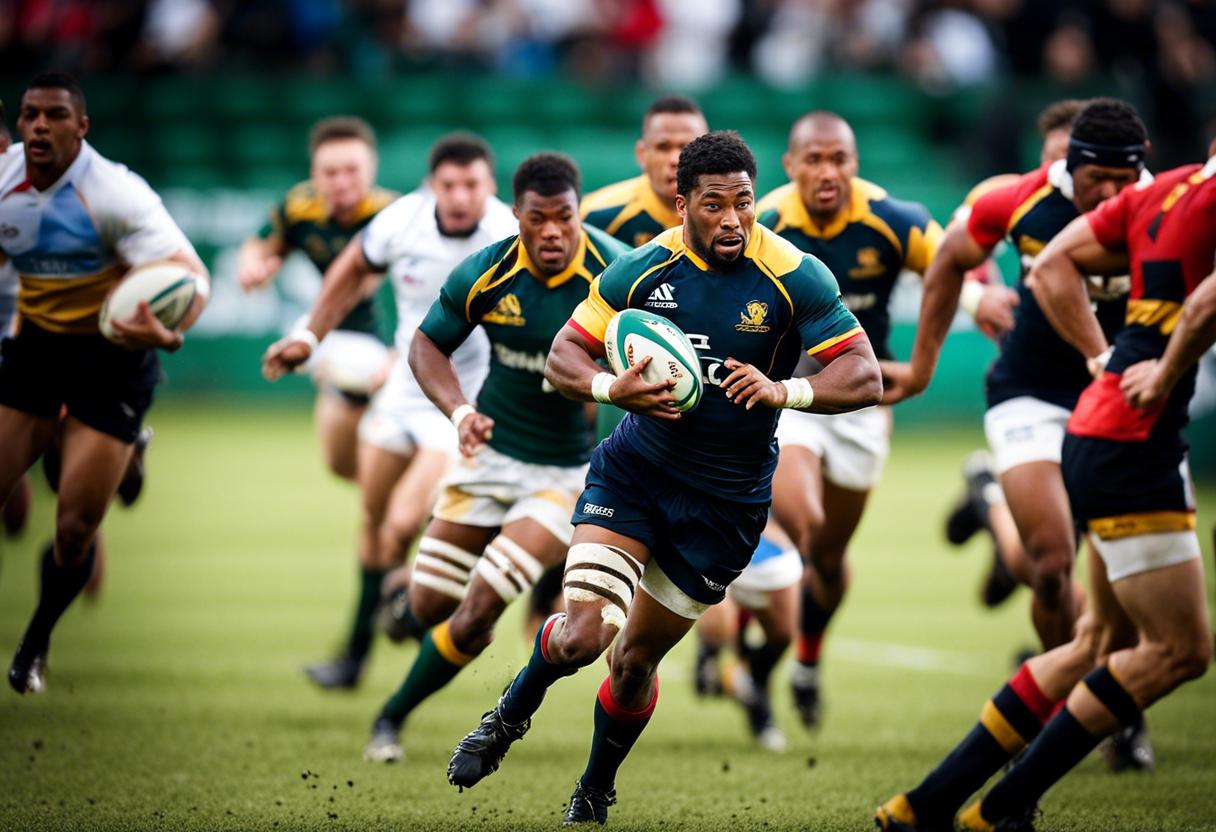During a recent conversation with Rob Baxter, the director of rugby for Exeter Chiefs, we had a discussion about what is considered the most challenging task in the sport. Everyone has their personal viewpoint – for instance, it could be the physical demand of halting a large, speeding forward just metres away from your line, or the pressure of executing a winning penalty kick in harsh weather conditions from a fifty-metre distance.
Baxter, however, approached this topic from an experienced coach’s perspective. He voiced that the toughest hurdles were typically psychological, including the strategy of preparing for a rematch against a team you previously dominated. “It’s extremely difficult to replicate a strong performance in back-to-back games,” Baxter asserted. He noted instances from his career, where the team’s performance varied significantly from one week to the next, regardless of winning by a 30-point lead.
Baxter’s concerns were particularly associated with the upcoming Champions Cup round of 16 match between Saracens and Bordeaux. Back in January, Saracens were defeated 55-15 by Bordeaux on their home turf. Therefore, it is natural to expect an easy victory for Bordeaux this Saturday, but Baxter cautioned against such assumptions. He emphasised that Saracens would have a different mindset for the rematch and will be prepared to do battle. Bordeaux may fall into the trap of expecting another comfortable win.
The question, however, still remains unclear – which Saracens team will show up for the match? Will it be the formidable team that demolished Harlequins with a 50-point game at Tottenham Hotspur Stadium, or the less effective team that conceded 40 points at Northampton last Friday night? Bordeaux’s performance also presents a conundrum. They astonishingly defeated Toulouse, contenders for the Top 14 title, last month, but were seriously trounced by underperforming Lyon over the weekend.
If you’re on the hunt for a sport brimming with the unpredictability akin to a game of hokey cokey, you wouldn’t go wrong with rugby union. One moment, a team could be riding high on a victorious wave; the next, plummeting to an abrupt defeat. This was evident when the Quins rebounded from their uninspired performance against Sarries. Against Bath, they led 40-3 well into the second half, only for Bath to retaliate with 33 points within the final 30 minutes. It’s perplexing situations like these that might have one reaching out for the team’s psychologist.
The potential reasons for these wild fluctuations could be down to a number of factors. The home field advantage is one, while altering the team lineup could be another. To the unassuming, incorporating fresh players after a victory seems logical. Yet, the team’s dynamics can be surprisingly sensitive. Similarly, sticking with the same XV may not always deliver the same results. As Baxter hinted, the mental approach can be just as important as the players on the field.
Case in point, the previous Heineken Cup format, which featured home and away pool matches on subsequent weeks regularly saw erratic results. For instance, Ulster would lose by a significant margin at Leicester, only to pile up 40 points on the same opponents in Ravenhill. In the 2003-04 seasons, they thrashed the Tigers 33-0 in Belfast, then fell to a 49-7 defeat at Welford Road the week after.
However, it cannot be attributed to just home-and-away settings. A wide range of unpredictable factors can affect outcomes – from unexpected scheduling changes and contractual issues, to logistical mishaps on match day and illness in the family. Like life, rugby isn’t linear. Important to note too, is that numerous astute analysts persistently scrutinise heaps of game footage. This means that successful moves can easily be countered in no time. Borthwick would agree.
The erratic and ever-changing dynamic of today’s rugby, pushes coaches to their limits as they strive to decipher the transition of their teams’ performance from championship material to underachievers in mere hours. The celebrated “Brist-anbul” rally of Quins from a 28-0 deficit in the 2021 Premiership semi-final is considered an exceptional accomplishment; it’s becoming increasingly common though, for teams to recover from potential defeat regularly.
Halting momentum becomes fiendishly challenging, for instance, if the incidence of penalties diminishes, thus removing the option to kick to the corner, secure a lineout, and apply pressure. This is encapsulated in the game between Quins and Bath where the return of prop Irné Herbst from the sin-bin earlier than warranted was utterly startling. The focus is less on the tackles that Herbst executed after rejoining the game illicitly, but more on the plethora of strategies that Bath, who were gaining momentum, might have utilized had he stayed out.
To the untrained eye, it may seem that the Champions Cup last 16 ties are more likely to favour the home teams. However, it’s not as straightforward as it seems. It may not be as easy for Bordeaux to defeat Sarries on this occasion, as rugby is notorious for being unpredictable. Though Northampton bested Munster at Thomond Park in January, this victory holds no weight when the opening whistle rings out at Franklin’s Gardens this upcoming weekend.
This leads us back to what can arguably be considered the most arduous role in rugby: refereeing a significant match flawlessly in the view of all spectators. Despite nearly 30 years of professional rugby union’s existence, the occurrence of an error-free refereed game remains to be seen. — Guardian

